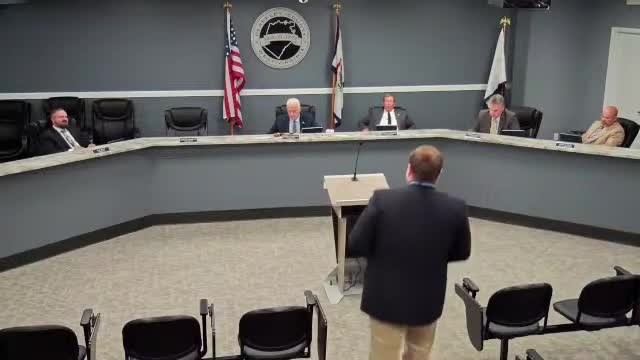Legal Battle Erupts Over Validity of Contested Will
September 20, 2024 | Berkeley County, West Virginia
This article was created by AI summarizing key points discussed. AI makes mistakes, so for full details and context, please refer to the video of the full meeting. Please report any errors so we can fix them. Report an error »

In a recent estate hearing concerning the late Lad Jasper Junior, significant legal questions arose regarding the validity of his will. Jasper, a resident of Berkeley County, passed away on June 13, 2024. His surviving spouse, Mary Jasper, presented a will dated August 10, 1998, naming her as the sole beneficiary and executrix.
However, complications emerged during the review of the will's self-proving affidavit, which was dated 20 days after the will's execution. While it is not uncommon for the witness attestation to be completed after the will is signed, the affidavit in this case failed to specify when the witnesses observed the testator's signature. This omission raises critical legal concerns, as West Virginia law mandates that a will must be signed by the testator and witnessed by at least two competent individuals present at the same time.
The implications of this oversight are significant. If the witnesses did not observe Jasper signing the will, it could render the document invalid. Historical precedents from the West Virginia Supreme Court have established that wills lacking proper witness verification can be invalidated, a principle upheld since the 1920s.
Despite these challenges, there is currently no evidence to suggest that the witnesses were not present during the signing. The will was prepared by an attorney's office, which adds a layer of credibility to the process. Furthermore, West Virginia courts generally favor the acceptance of a decedent's will over intestacy, indicating a judicial preference for honoring the wishes of the deceased whenever legally possible.
As the hearing progresses, the commission must carefully consider these legal nuances to determine the fate of Lad Jasper Junior's estate.
However, complications emerged during the review of the will's self-proving affidavit, which was dated 20 days after the will's execution. While it is not uncommon for the witness attestation to be completed after the will is signed, the affidavit in this case failed to specify when the witnesses observed the testator's signature. This omission raises critical legal concerns, as West Virginia law mandates that a will must be signed by the testator and witnessed by at least two competent individuals present at the same time.
The implications of this oversight are significant. If the witnesses did not observe Jasper signing the will, it could render the document invalid. Historical precedents from the West Virginia Supreme Court have established that wills lacking proper witness verification can be invalidated, a principle upheld since the 1920s.
Despite these challenges, there is currently no evidence to suggest that the witnesses were not present during the signing. The will was prepared by an attorney's office, which adds a layer of credibility to the process. Furthermore, West Virginia courts generally favor the acceptance of a decedent's will over intestacy, indicating a judicial preference for honoring the wishes of the deceased whenever legally possible.
As the hearing progresses, the commission must carefully consider these legal nuances to determine the fate of Lad Jasper Junior's estate.
View full meeting
This article is based on a recent meeting—watch the full video and explore the complete transcript for deeper insights into the discussion.
View full meeting